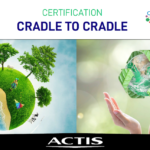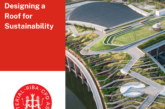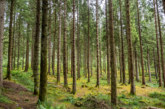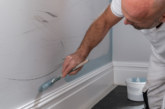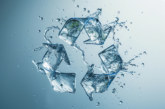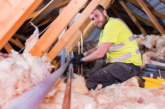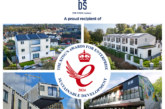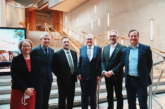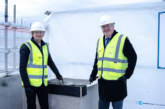Insulation Actis Hybris has become the only reflective insulation in Europe to earn international Cradle to Cradle Certification for its sustainability credentials.
It is the second environmental certification it has earned this year, underlining Actis’ commitment to protecting the planet and its determination to lead the way in minimising the negative impact of construction materials manufactured across the continent.
Key achievements highlighted by the certification include Actis’ zero waste policy and Hybris’ 100% recyclability, which contribute to the company’s aim of creating a circular economy.
The accreditation saw the Cradle to Cradle Products Innovation Institute-accredited organisation Upcyclea examine five criteria covering the end-to-end production process. These included reuse of materials, renewable energies, water use, the health implications of the materials used and social responsibility.
Actis was awarded an overall bronze status, a level very difficult to achieve due to its stringent criteria, with two categories already achieving the higher silver level — reuse of materials and social equity. The fact that all elements are 100% recyclable, combined with its zero-waste production process which sees all off-cuts recovered, crushed and reintroduced into the manufacturing process, enabled it to earn the higher ranking in the materials reuse section.
Praise for the renewable energies and carbon management element was based on several factors, including the low carbon footprint achieved during the manufacturing process.
Few raw materials and fewer energy resources used during production means its carbon emissions are low – 2.39 CO2/m2 for the 105 mm thickness variant of the Hybris product. The multiple air cavities, which form an essential part of the honeycomb structure, mean fewer raw materials are used to achieve the required thermal efficiency, and less water and electricity are required for its production.
Actis aims to reduce its environmental impact further over the coming months, with a commitment to power all its factories with solar energy. The first such plant is already being upgraded, with the aim that it will be fully solar-powered before the end of 2023.
Reduced fuel consumption during transportation also fed into the bronze status for this category. The lightness and compactness of air-filled Hybris means more thermal capacity can be carried per lorry load than traditional solid insulation or fibreglass.
Hybris also earned bronze status for its water conservation, thanks to the relatively low amount used during the entire production process.
From a health point of view, the certification also highlights the facts that reflective insulation contains no volatile organic compounds (VOCs) or harmful chemical components such as formaldehyde, or phenol, that it is guaranteed non-irritant and classified A+ for indoor air quality according to the NF EN ISO 16000 standard.
The award follows the publication earlier this year of a series of Environmental Product Declarations (EPDs), which emphasise Hybris’ cradle to grave environmental footprint. It is the latest demonstration of Actis’ commitment to the environment and determination to lead the way in helping the industry achieve net zero well before the 2050 deadline. And it will give architects and specifiers extra confidence that using the product in their projects will give them a head start in obtaining an impressive energy efficiency rating.
Actis UK and Ireland Sales Director Mark Cooper said: “We are very proud to have achieved the official status of being a circular economy’ manufacturer. This certification goes a huge way towards demonstrating our commitment to sustainability.
“We have been known for many years as a restless, constantly innovative insulation manufacturer, committed to leading the way in new technology to help reduce the impact of the construction industry on the environment.
“Not only do our products themselves enable builders to reduce carbon emissions by helping create a thermally efficient home, the very means by which they are manufactured are also sustainable.
“This accreditation — along with the EPDs before it — emphasise that this determination is not just a dream, a far-off aim, but something we have already achieved. But we want to go further. We have achieved an overall bronze status, with two categories already achieving silver. As the certification needs to be renewed every two years, we are striving to exceed these standards in the future.”

